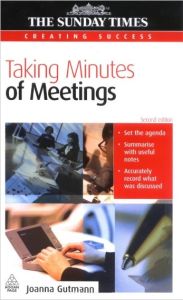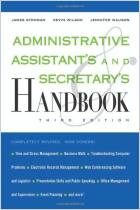Acesse a sua conta getAbstract para obter o resumo!

Acesse a sua conta getAbstract para obter o resumo!
Joanna Gutmann
Taking Minutes of Meetings
Kogan Page, 2006
Sobre o que é?
A practical, easy-to-use resource for one of the most important people at any meeting: the minute-taker.
Recommendation
The unsung hero of any corporate meeting is the minute-taker, quietly and diligently recording the decisions, big and small, that fuel the engines of business. Minute-taking is not simply the process of scribbling notes on a pad. A skilled minute-taker distills lengthy discussions down to their essential messages, and creates order and harmony from the often discordant process of reaching a consensus. Office communication consultant Joanna Gutmann carefully explains every aspect of the process, from setting up the meeting and distributing the agenda to taking notes and formatting the minutes. You will encounter quite a bit of redundancy if you read the book cover-to-cover, but getAbstract believes you will find it to be an indispensable reference if you are assigned to take the minutes.
Summary
About the Author
Joanna Gutmann is an office communication training consultant. She has designed and implemented several courses on office skills and communication for secretaries and other office staff members.























Comment on this summary